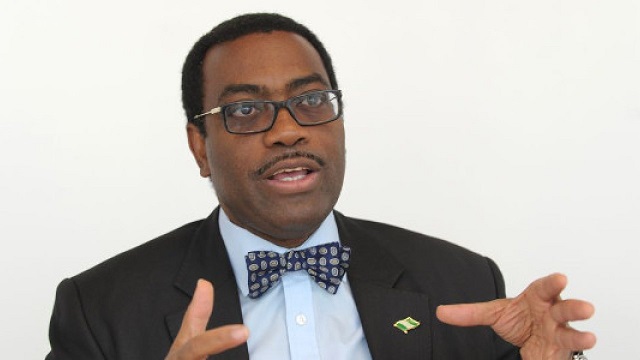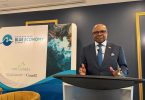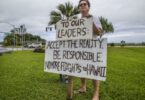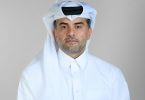kao African continent braves to contain the spread of COVID-19 within and outside its boundaries, the African Development Bank is now working in partnership with states on development of West Africa human capital strategy to empower an employment plan in the West African region.
In partnership with the economic community of West African States (ECOWAS), the African Development Bank (AfDB) outlined the human capital strategy plan for the West African bloc.
The Bank held a virtual stakeholder forum to outline the West Africa human capital strategy in partnership with the Economic Community of West African States (ECOWAS).
The forum, which rallied more than 100 stakeholders from across Africa at the end of April, agreed to invest in human capital to accelerate development and economic prosperity.
Martha Phiri, the AfDB Director of the Bank’s Human Capital, Youth and Skills Development Department, said one of the Bank’s High Five strategic priorities was to “Improve the Quality of Life for the People of Africa” which recognizes the need to train Africa’s youth for the jobs of today and the future.
“Millions of jobs have been threatened as a result of the Pandemija COVID-19, with some job functions now extinct, almost overnight,” she said in opening remarks at the forum.
Other speakers made presentations on the strategy and invited feedback on its goals and action plan from the participants and included representatives of government ministries, departments, and agencies from the 15 ECOWAS regional states, development partners, civil society organizations, academia, and the private sector.
A recent African Development Bank report on the fourth industrial revolution in Africa, states that automation will replace about 47 percent of current jobs by the year 2030.
“Disruption, digitalization, and globalization are causing rapid changes to the education, skills, and labor landscape. These changes highlight the growing gap between the current skill level of prospective workers in the region, and employer demand for relevant skills,” the Bank said in its report.
“In order to anticipate and prepare the resilience of our states to cope with all situations, it has proven important to take stock of the situation on human capital, define a strategy and an action plan for the region,” Finda Koroma, ECOWAS Commission Vice President, told attendees.
The ECOWAS strategy, being developed with support from consulting firm Ernst & Young Nigeria, focuses on education, skills development, and labor challenges and opportunities in the sub-region.
Feedback will be incorporated into the final report, which will present strategies and solutions for investing in West Africa human capital to accelerate development and economic prosperity.
Also at the forum were the ECOWAS Commissioner for Education, Science and Culture, Professor Leopoldo Amado; ECOWAS Director for Education, Science and Culture, Professor Abdoulaye Maga; and Dr. Sintiki Ugbe, ECOWAS Director for Humanitarian and Social Affairs.
The African Development Bank and the Government of Japan co-funded the ECOWAS Human Capital Strategy whose final version is expected to be published next month (June).
AfDB Group President Dr. Akinwumi Adesina asked United States African government officials and corporate executives to forge new and sustainable partnerships that would endure beyond the COVID-19 pandemic in Africa.
He noted in his statement late in April that an accelerated global health and economic effort is needed to overcome the COVID-19 pandemic in Africa. Speaking during a global Corporate Council on Africa (CCA) webinar, Adesina said, “One death is one too many,” and that “our collective humanity is at stake..
The CCA is a leading U.S. business association that promotes business and investment between the United States and Africa. Urging participants to be their brother’s and sister’s keepers, Adesina said there was a compelling need to pay attention to underlying global inequalities, and the impact on rich and poor countries.
Adesina highlighted the Bank’s recent US$3 billion “Fight COVID-19” bond, as the largest ever US dollar-denominated social bond.
The bond, oversubscribed at US$4.6 billion, is listed on the London Stock Exchange.
The AfDB also launched a US$10 billion COVID-19 Response Facility to assist African governments and businesses.
The Bank’s response package includes US$5.5 billion earmarked for African governments, US$3.1 billion for countries that fall under the Bank’s concessionary African Development Fund, and US$1.4 billion for the private sector.
Fielding several questions about Africa’s healthcare system, Adesina said the region needs to more than double spending in the sector. He cited the acute shortage of facilities and pharmaceutical companies on the continent as development and investment opportunities.
He noted that while China is home to 7,000 pharmaceutical companies, and India 11,000, Africa, by contrast, has only 375, even though its population is roughly equal to half of the combined population of both Asian giants.
He pointed out that while COVID-19 infection rates are relatively low compared to the rest of the world, there is a growing sense of urgency given the acute absence of healthcare infrastructure on the continent.
With an eye on the present crisis and beyond, Adesina called for urgent, new, and resilient partnerships that will help leave no one behind. Corporate Council on Africa President and CEO Florie Liser lauded the African Development Bank’s proactive leadership role in responding to the crisis in Africa.
“The COVID-19 pandemic threatens to erase Africa’s unprecedented growth and economic gains over the last decade,” she said.
#rebuildingtravel























